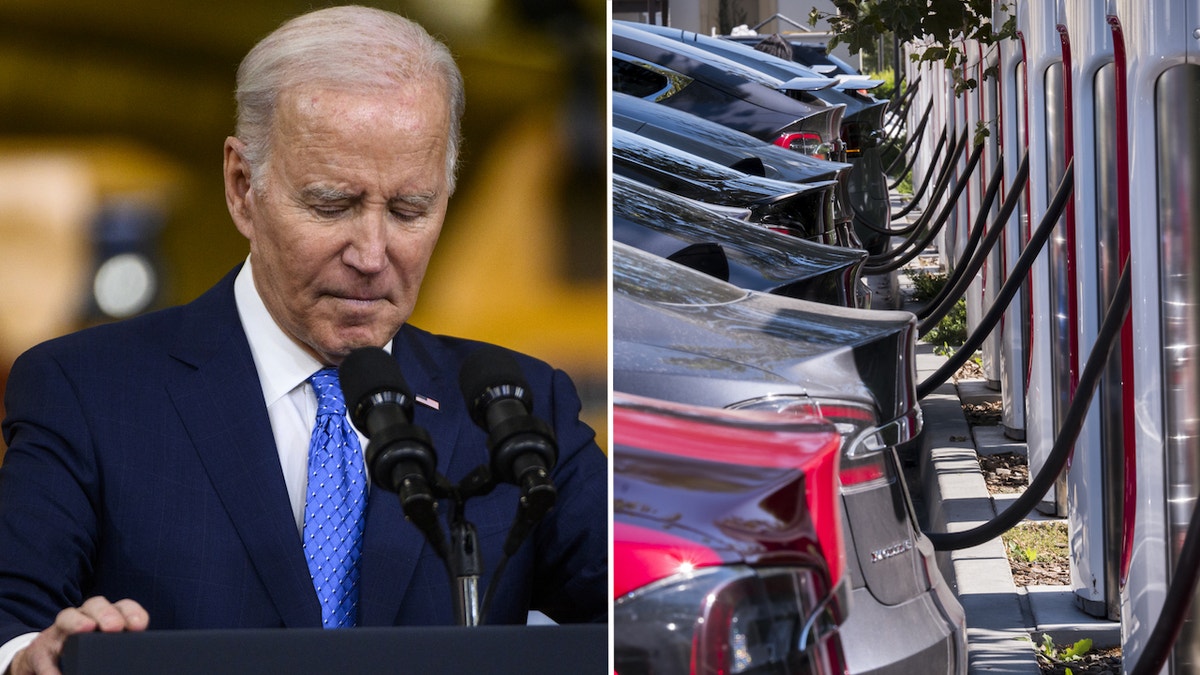Resistance Grows: Car Dealerships Push Back On EV Mandates

Table of Contents
Financial Concerns: The High Cost of EV Adoption for Dealerships
Implementing EV mandates presents a substantial financial burden for car dealerships. The transition to a predominantly electric vehicle market requires significant upfront investments that many dealerships are finding difficult to absorb. This financial strain contributes heavily to the growing resistance to these regulations impacting electric vehicle sales.
- Expensive Infrastructure Upgrades: Installing the necessary charging infrastructure—including high-powered chargers capable of rapid charging—represents a considerable capital expenditure. This is especially challenging for smaller dealerships with limited resources.
- Training Costs for Staff: Dealership staff require extensive training on EV technology, maintenance, and sales techniques. This necessitates investment in specialized training programs and potentially hiring new, specialized personnel.
- Marketing and Advertising Costs: Promoting EVs effectively requires targeted marketing campaigns to educate consumers about the benefits of electric vehicles and address common misconceptions. This adds to the already significant marketing budgets of dealerships.
- Inventory Management Challenges: Current consumer demand for EVs is still lower than for gasoline-powered vehicles in many markets. Managing EV inventory effectively, avoiding overstocking while meeting mandate targets, presents a significant logistical and financial challenge.
- Lack of Government Support: Many dealerships report insufficient government support or incentives to offset the high costs associated with EV infrastructure upgrades and staff training. This lack of financial assistance exacerbates the financial strain imposed by EV mandates.
Logistical Challenges: Infrastructure and Consumer Demand
Beyond the financial implications, dealerships face significant logistical hurdles in meeting the targets set by EV mandates. The current landscape is not adequately equipped to support a rapid transition to widespread EV adoption.
- Limited Consumer Demand: Consumer demand for EVs varies significantly across different regions and demographics. In areas with limited charging infrastructure or less environmental awareness, EV sales remain sluggish, making it challenging for dealerships to meet mandated targets.
- Range Anxiety and Charging Infrastructure Limitations: Range anxiety, the fear of running out of battery charge before reaching a charging station, remains a significant barrier to EV adoption. The insufficient availability of public charging stations further exacerbates this problem.
- Lack of Public Awareness: Many consumers lack a comprehensive understanding of EV technology, charging processes, and maintenance requirements. This lack of awareness hinders EV sales and increases the burden on dealerships to educate consumers.
- Electricity Grid Capacity: The increased demand for electricity from widespread EV adoption raises concerns about the capacity of existing electricity grids to handle the increased load, potentially leading to grid instability.
- Uncertainty about Future Policies: Dealerships are hesitant to make substantial investments in EV infrastructure without clarity on future government policies and incentives. The uncertainty surrounding these policies adds to the logistical and financial risks.
Consumer Resistance: Misconceptions and Barriers to EV Adoption
Despite growing environmental awareness, consumer resistance to electric vehicles remains a significant obstacle to meeting EV mandates. Several factors contribute to this reluctance.
- High Initial Purchase Price: The initial purchase price of EVs is often significantly higher than comparable gasoline-powered vehicles, deterring many potential buyers.
- Limited Vehicle Selection: The range of EV models available is still limited compared to gasoline cars, restricting consumer choice.
- Charging Times and Range Limitations: Concerns about longer charging times and shorter driving ranges compared to gasoline vehicles continue to deter consumers.
- Lack of Charging Infrastructure: The inadequate availability of public charging stations, particularly in rural areas, creates range anxiety and discourages EV adoption.
- Misconceptions about Maintenance: Misconceptions about EV maintenance, battery life, and repair costs contribute to consumer hesitancy.
The Dealerships' Response: Lobbying and Public Pressure
Faced with these challenges, car dealerships are actively resisting the implementation of EV mandates through various means.
- Lobbying Efforts: Dealerships are engaging in lobbying efforts to influence government policies on EV adoption, advocating for more realistic targets and greater financial support.
- Public Relations Campaigns: Many dealerships are launching public relations campaigns to highlight the challenges of EV mandates and the negative impacts on their businesses.
- Industry Collaboration: Dealerships are collaborating with industry associations to present a unified front against overly aggressive mandates.
- Legal Challenges: Some dealerships are exploring legal challenges to specific aspects of the EV mandates, arguing that they are impractical and economically damaging.
- Investment in Hybrids: Several dealerships are investing in alternative solutions, such as hybrid vehicles, to meet evolving consumer demands and navigate the transition to electric mobility.
Conclusion: The Future of EV Adoption and the Ongoing Debate on EV Mandates
The transition to electric vehicles is undeniably crucial for environmental sustainability. However, the rapid implementation of EV mandates without addressing the financial, logistical, and consumer-related challenges faced by car dealerships is proving to be counterproductive. The significant upfront investment required, coupled with limited consumer demand and inadequate infrastructure, is creating a significant backlash. Understanding the resistance to EV mandates is crucial for developing effective policies that promote sustainable transportation while considering the practical challenges faced by the automotive industry. We need a balanced approach that incentivizes EV adoption without jeopardizing the economic viability of dealerships and the consumer's ability to make informed choices. Let's engage in a constructive dialogue to find solutions that foster a smooth transition to electric mobility.

Featured Posts
-
 Short And Sweet Binge This Top Stephen King Show In Under 5 Hours
May 06, 2025
Short And Sweet Binge This Top Stephen King Show In Under 5 Hours
May 06, 2025 -
 Cybercriminals Office365 Scheme Millions In Losses Federal Charges Filed
May 06, 2025
Cybercriminals Office365 Scheme Millions In Losses Federal Charges Filed
May 06, 2025 -
 Demi Mur I Bryus Uillis Tyoploe Pozdravlenie S Yubileem
May 06, 2025
Demi Mur I Bryus Uillis Tyoploe Pozdravlenie S Yubileem
May 06, 2025 -
 Ed Shiyrn Govori Za Riana Neochakvano Priznanie
May 06, 2025
Ed Shiyrn Govori Za Riana Neochakvano Priznanie
May 06, 2025 -
 Live Streaming Timnas U20 Indonesia Vs Yaman 18 30 Wib Nonton Di Sini
May 06, 2025
Live Streaming Timnas U20 Indonesia Vs Yaman 18 30 Wib Nonton Di Sini
May 06, 2025
